(in translation) Today I got on Wisenews and I did not find a single news report on the local anti-war protest. Did you know about it? More than 100 Hong Kong people, including locals, Lebanese, Indonesians, Filipinos, Americans, Japanese, Indians, with different religious backgrounds (Muslims and Christians) marched in Central/Admiralty yesterday. You probably don't know because none of the newspapers mentioned it.
In the grand scheme of things, it was less important for the newspapers to cover the demonstration than to inform the public and lead opinion. Here is an excerpt from Lu Feng's editorial in Apple Daily (Hong Kong) and this means much more than a short story on the demonstration. Why? Because this was the flagship editorial statement from a newspaper with a circulation of 350,000.
(in translation) As I watched the rescuers bring out one after another dust-covered, lifeless children from the collapsed buildings, I only felt sorrow in my heart. What did these Lebanese children do wrong? Why must the Israeli warplanes and bombs insist on killing them?
According to the IDF, they had warned the residents to leave the villages in southern Lebanon. Since Hezbollah was firing rockets from this area, Hezbollah and the local residents are responsible for this incident.
This manner of blaming the victims is shocking and revolting! Everybody knows that the Lebanese residents want to leave the battle zone in southern Lebvanon, but they cannot. Ever since the IDF invaded Lebanon more than two weeks ago, more than 700,000 Lebanese persons have been displaced. It is impossible for this huge number of refuges to leave southern Lebanon and find safe haven elsewhere. Most of them stay in the war zone and hope to get by from day to day. They hide in the few buildings and hope that they can be spared the Israeli artillery shells and bombs. But the Israeli attack was too intense and many Lebanese did not survive, including many Lebanese children who were buried in the debris or killed by the firepower. Do these Lebanese who have nowhere to go really deserve to die? Are they really responsible for their own deaths as the IDF says?
Actually, even if the refuges leave the war zone, they may not be safe even though they have gotten away from the places with the most intensive fighting. It does not mean that they can live in peace, because the Israeli firepower does not distinguish between military and civilian targets. The Israeli will not hold back for women and children, not even for UN peacekeepers. Isn't that true? The UN observers in Lebanon communicated with the Israeli authorities many times to make sure that their post would not be attacked and Israel promised them as such, but that was an empty promise; multiple Israeli shells hit the observersation post, causing the deaths of four UN observer and many other injuries. If the UN facilities which represent the international commuinty could be a target of attack, then where can the Lebanese civilians and children escape to?
... At the G8 meeting, US President George W. Bush said in private: "(they need to do is get Syria to get Hezbollah to stop doing this shit and it's over." Perhaps the international commuinty ought to say something like: "(they) need to do is get US to get Israel to stop doing the shit and it's over."
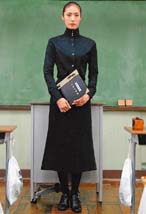
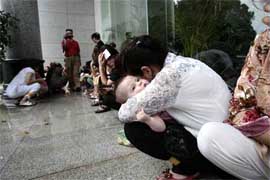
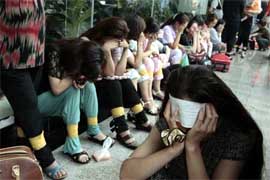
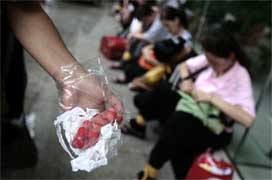
All and all, I have it pretty easy here. My hotel has a generator that runs 24-7, while most Gazans have electricity only a few hours a day, if that. The IDF bombed the main power station a few weeks ago, and it looks like it might take years to fix. My hotel even has wireless Internet and hasn't yet run out of food, which is served on a terrace overlooking the Mediterranean. (Gaza has the sweetest strawberries in the world.) More important, I can leave whenever I want to, something most Palestinians can't do. If I decide that I want to see the opening night of my boyfriend's play, or catch a Red Sox game or attend my mother's 60th birthday party at a Connecticut casino, I can.
But most of the time, I'm happy to stay. The nights are not as much fun as they were before the foreign press corps picked up and left en masse for Lebanon and Haifa, but I enjoy my days more now that the streets are not clogged with other reporters. Although international attention has shifted to Lebanon, the violence here continues unabated, so there's plenty to do. And the Gazans generally treat me with warmth and courtesy. They see the foreign press as a lifelinea chance to tell the world their story. Almost everybody believes that the world will listen.
I have my doubts. Polaris, my agency, sends me plenty of e-mails reassuring me that my pictures are not being sent out into a void, but the outside world doesn't seem all that interested in making the shelling stop. My politics are pretty simple. Killing people is bad. Killing civilians is worse. Killing children is an obscenitywhether it's the Katyusha rockets that killed two kids playing in their yard in Nazareth or the 6-year-old girl killed in her house in Shajiya. But no one in charge of this conflict has much to gain by stopping it. With each new atrocity, the extremists on both sides gain greater strength. Prime Minister Ehud Olmert has never been more popular in Israel, and Palestinians are hunkering down behind Hamas.
I asked one of my best friends, a local AP photographer, how he was doing and he said, "Work is good. The situation is kharra (shit)." That pretty much sums up life here. It's the essential contradiction of what I do. If my kid were killed, I wouldn't want some grimy little snapper sticking her lens in my face, but I do that to people every day. I don't beat myself up for it, either. I'm here to work, not to watch or to hold their hand and experience their pain. And it's my job to show that the shelling leaves real people, crying real tears, over their really dead sons and daughters.
First, most Chinese bloggers do not write anonymously. On the contrary, they want to wear the shining cloak of scandals to gain public attention and elevate their standings. Many bloggers accomplish fame through their blogs and then they become official media workers. Second, the study of the blogs of 175 bloggers showed that none of them covered political or social issues. Third, most blogs are comments or interpretations of officially sanctioned contents and there are no investigative news or participatory social reports. The power of the fourth estate is missing in the Internet.
The 16 million bloggers are not subversive. Therefore, it was not surprising that at the National People's Congress in April this year, there was an open discussion as to whether national chairman Hu Jintao and all People's Congress representatives should have their own blogs. In China, blogs are not developing from the bottom up. Instead, it is a political organization that is turned upside down from above.
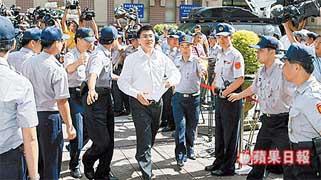
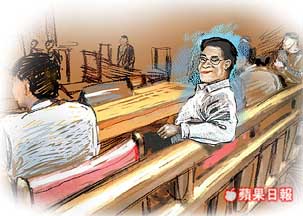
聞見思錄: 博客觀事入微,資料十足,文筆流暢,照片醒神,在本港博落界知名度頗高。
东南西北:博客宋以朗事廣被傳媒報道,不贅;兩個字︰「佩服」。
香港仔公园:本地博落界另一知名人物,對香港事有態度。「香港仔」是指博客來自香港仔。
港燦筆記:本欄曾經介紹我喜愛的本地博客。燦兄觀事敏感度強,分析力強,文字溝通能力強,應該是各大報章羅致對象。
阿麦书房部落:除了北角「森記」,銅鑼灣「阿麥書房」是我近年喜愛光顧,洋溢「書意」的書局。博客莊國棟是有心人,有心人寫的東西大都好看。稿紙之外:一直喜愛馬家輝的文字,原來他的拍攝功力也不弱。
大學怪談:教育是一個我陌生的課題,有態度的教育工作者帶我進入多事領域。
中环博客:「中環博客」專欄已成為《AM 730》主打,廣受中環人注視。《AM 730》各位朋友︰首個目標已在望,努力!
国金外望:難兄難弟,客套話不多說,日後自己保重。As this was the final edition of his popular column 原是物語, this can be said to be a significant moment.
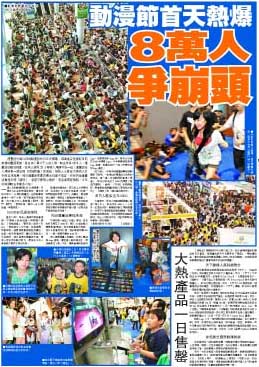



(in translation) There are different sayings about the meaning of 'Savantas', including one that is completely opposite. A reader recently consulted Joint Publishing Press' New French-Chinese Dictionary and found that the former meaning of Savantas refers to "people who pretend that they are learned, or people who barely understand, or people who pretend to be experts."
According to the explanation of Regina Ip, Savantas is derived from the French word 'savant' for learned people and added with 'as' (as in the Latin words veritas, caritas, pietas) to express the knowledge and wisdom of the think them. The vice executive manager Gerald Henry of Alliance Française said that the French language has the word 'savant' which means a knowledgeable person but not 'savantas.'
Here is the official explanation on the website of Savantas:
The name "Savantas" was built by combining the French word "savant", meaning a person of great learning, with the suffix of many Latin nouns (for example veritas, caritas, pietas), to signify our accent on knowledge and wisdom.
But after sifting through the evidence, I am not convinced about this alleged opposite meaning for 'savantas.' I have not seen the primary evidence cited in the Ming Pao report (namely, the New French-Chinese Dictionary). But why would I need a French-Chinese dictionary if I want to find the meaning of a French word?
The best researched resources come from 戴珍 at InMediaHK and InMediaHK. But it is still not totally convincing. Here is the partial translation from the first essay:
... All those learned people who value knowledge and wisdom never thought that 'savantas' which is combined from French and Latin was still a French word that means 'faux savant' (or 'fake scholar') ...
But if I were to look up the synonyms, then 'savantas' is listed with 'faux savant,' 'poseur' and other negative words as well as 'maître,' 'savant' and other positive words. So the use of the word will have to depend on the context.
For supporting evidence, 戴珍 has a citation from Molière's Les Fâcheux:
Et des gens comme vous doivent fuir l'entretien
De tous ces savantas qui ne sont bons à rien.(in English)
And people like you should get away from the conversation
Of all these savantas who are good at nothing.This is unconvincing because it is no different from Richard Nixon's vice-president Spiro Agnew's characterization of the Vietnam War student radical protestors as "effete intellectual snobs," which should not equate all intellectuals as being "effete" and "snobs" forever afterwards. In Molière's play, 'savantas' could have easily been replaced by 'savants,' 'intellectuals,' or 'sages' without skipping a beat.
But, in the end, what is in a name anyway? For me, the real puzzlement in all this is just why the contest for Chief Executive is limited to current or former government officials (Donald Tsang, Anson Chan, Regina Ip, Henry Tang, Arthur Li etc) while anyone else without those kinds of credential need not apply. And it also seems that prior government experience will qualify someone, no matter what the actual performance was. How else can I explain the re-emergence of Ms. Regina "Damaged Goods" Ip?
P.S. I have cast out the brick and the jade is here from the Kalos Kagathos blog (in Chinese); plus 小狼: 法語1分鐘:SAVANTAS
- 66% of respondents know that the 2008 Olympics will be held in Beijing
- 14% are proud that Beijing is the host; 2% are disgusted; 66% have no special feelings; 17% no opinion.
- 34% are proud of mainland Chinese gold medalists; 2% feel negative about them; 51% have no special feelings; 11% no opinion.
- 46% think the Olympics will greatly help the mainland economy; 24% think it will help somewhat.
- 39% think the gap in international standing between mainland and Taiwan will grow as a result of the Beijing Olympics; 5% think the gap will shrink; 28% think that there won't be any big changes; 27% no opinion.
- 18% think mainland and Taiwan will come close as a result of the Beijing Olympics; 5% think that they will go further apart; 45% think that there is no impact; 32% have no opinion.
- overall, 20% think that the Beijing Olympics will be good for Taiwan; 20% think it will be bad; 42% think no material impact; 22% no opinion.
(in translation) There was a movie titled The Full Monty in which certain American unemployed workers resorted to strip-dancing to make a living. I am not interested in male strip-dancers and so I have not seen that movie. Reportedly, that movie is full of vulgar capitalist jokes and blind optimism, treating the serious issue of unemployment as farce -- over here, we would have asked Liu Huan to sing gloriously: "We only have to start over again."
Recently, I personally witnessed a Full Monty incident for ten people unrelated to unemployment. It was like this: Somewhere in Shandong, a blind rights activist has been charged with some unusual crimes and placed under detention for six months already. Recently, the court trial was to begin and a certain group of people wanted to attend the trial and offer support.
On the night before the trial, the group arrived around midnight and were immediately tailed by unidentified persons. When they went to the courthouse early in the morning, they were followed by cars without license numbers. When they arrived at the courthouse, they took out their video cameras to film. Immediately, a group of people who identified themselves as "civilians" came up to seize the equipment Our videocameras, cameras and mobile phones were seized. 110 arrived forty minutes later, whereupon the "civilians" who took our equipment were untouched while we were taken down to the police station. While we were waiting for 110 to arrive, some local citizens told us that the "civlians" were really local police officers. While waiting at the police station, I spotted one of the "civilian" now wearing a police uniform. The most funny thing was that the unlicensed vehicles which followed us around were parked in the courtyyard of the police station ...
The local police officers politely took our statements and released us. We then proceeded to the village in which the blind man lived. That was when the Fully Monty incident took place.
In order to show our support, we wore specially printed t-shirts with the head of the blind man in front (I did not wear one because there wasn't one whose size was large enough for me). At the entrance to the village, we were intercepted by forty to fifty people. Under the direction of several people, they snatched our t-shirts so that we were bare-backed. Then someone said that they wanted to overturn our cars. So they were pushing hard while we watched on the side. Suddenly someone ordered: "Stop pushing! Let them leave quicly!" So we smiled and got into the cars. Even though each car was packed with bare-topped men, we were not angry as we only found this funny.
There was another episode that I must mention. When we got to a place, I thought that I had lost my direction. So I told someone in our car to get out and ask the people in the unlicensed car behind us to lead the way to the expressway entrance so that we can go back to Beijing. They were very happy and immediately complied. They escorted us all the way out of the local jurisdiction.
This whole incident has a lot of significant aspects. Some people were struck by how the local powers behaved like underworld gangsters. What kind of world is this? But my personal views are different.
You have to know that this incident appears to be a case in which we were robbed and we spilled a few drops of blood. But those "civilians" were quite restrained. They did not show any sign of being ready to punch with their fists, which means that they have been sternly warned to be careful about employing violence. Even when they made the Full Monty show of us, they were quite constrained as they focused only on the t-shirts. Of course, we did not fight back and we did not talk talk back.
The restraint against violence and the use of plainclothes while on duty actually signaled that the authorities have imposed self-restraints. In my usual terminology, this means that they have castrated themselves.
This change means that the authorities have basically abandoned the use of public powers and symbols (such as police uniforms) to oppress people in whatever manner that they see fit. By abandoning this approach, they have admitted that they are morally defeated. From doing these things under the sunshine, they now have to work like underground moles.
... The establishment of legal processes, rule of law and human rights basically follows this path: civilian resistance -> violent oppression -> more resistance -> open oppression to hidden oppression -> social progress. Following the self-castration of the authorities due to social pressure, the space is gettling larger and the degree of progress is bigger. From this viewpoint, this Full Monty show had been quite worthwhile.
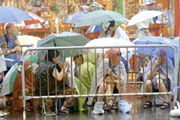
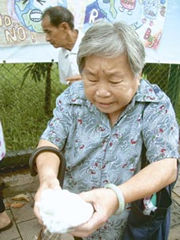
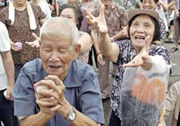
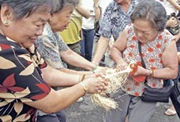


[in translation] I have been in publishing for eighteen years. Finally, I got my first "banned book." At this year's Hong Kong Book Fair, the new book "Dirty Old Books" at our booth was ordered off by an official from the Television and Entertainment Licensing Authority ...
"Dirty Old Book" contains the study results of a Hong Kong cultural researcher who spent more than three years on local adult magazines from the 1960's and 1970's. The book noted the historical development of erotic magazines, the social development of control, the needs of the readers and hence the cultural tastes and quality of Hong Kong. Basically, this is a cultural study.
The author cited numerous cases, which had to illustrated by the photos that appeared in the old magazines. For example, "the covers did not always use pretty girls, but they sometimes used scary middle-aged women," "the first appearance of uncovered nipples" and "the unprofessional poses of the local models." We covered up these photographs by using blurs first and then flowery patterns on top -- we did not mean to circumvent the law and we only want to make sure that people recognize that we were not selling pornography.
... The official who banned the "Dirty Old Book" at the book fair said that female bodies were shown in the book with only the sensitive spots being covered. This was not good enough for him, and so the book had to be removed!
As I stared at this official, I was reminded of what Chip Tsao said: "The peculiarity of Hong Kong's inspection system is such that the kids here will someday be shocked when they see a the nude body of a real female because she has are no square spots!"
As I was explaining to the official about the position and intent of the book, he interrupted me and articulated clearly: "You don't have to say anything else. I've got no culture ... (「你唔使講咁多,我係無文化嘅 )."
Wow! Which place in this world would apppoint someone with no culture to handle cultural matters?? Well, Hong Kong does that!
[in translation] I did not expect that after I expressed some personal thoughts on the war in Lebanon last week, I would be lucky to draw the attention of the Israeli consul general in Hong Kong.
I did not intend to offend anyone, but the non-stop assault against the civilian infrastructure of another nation, the destruction of civilian homes and the displacement of innocent civilians from their homes truly pained my conscience. My instinctive feeling was that this was conducting terroristic attacks in the name of anti-terrorism!? Or should this be called humanitarian intervention or friendly fire?
First of all, this war began when Hizbollah kidnapped two Israeli soldiers from inside Israel near the border in the hope of making a swap for Lebanese political prisoners. These types of border clash can be mediated and negotiated through the international community, or at least the problem can be restricted without large-scale warfare. According to reports, the bombardment of the first few days were not directed against the Hizbollah military forces but instead against civilians. This has to lead people to speculate whether Israel's true goal is to use the opportunity to destroy a defenseless small county with utter indifference to the lives of the innocent civilians?
The international community and media have no sense of right or wrong. When the Israeli said that they would begin a land war in southern Lebanon, the media such as CNN described the invasion as "entering South Lebanon." These types of word games are intended to mislead the public.
Oh! What kind of world do we live in?
Although Hong Kong is tiny, it is still a cosmpolitan city. We held the WTO conference here last year and we claim to embrace globalization. Although I know that I am just a small Hong Kong reporter without much influence, I must make a statement on matters of right and wrong. From afar in El Salvador, I check the Hong Kong newspaper websites. The reports on the war in Lebanon are no longer international headlines, as everybody continues to chase after Mrs. Chan or other trivia.
I hope that Hong Kong society does not become numb and ignorant! Starting a war will not bring security and happiness to Israel, as Israeli citizens are also being attacked. Why should those lovely Israeli children become victims for no apparent reason? It is the good citizens from both sides who are being held hostage by the extremist politicians!
(True Notes 2) For clarification:
The Israeli Consulate did not literately request the Hong Kong Economic Times to stop me from writing anything ridiculing them. I think the inmedia has misunderstood the incident. Before? Yes. But not Hong Kong Economic Times. It is Hong Kong Economic Journal. They asked the HKEJ not to give me a platform for my articles. Since I still write for both the newspapers, it is obvious that my freedom of expression has been respected. I feel grateful to the chief editors of HKEJ and HKET, and I enjoy writing for them.
2. Anti-Isreal? In what way? I also critize China and Hong Kong . Am I anti-China or anti-Hong Kong?¨How convenient it is to give someone this label which by itself is a tool to create sterotyping and conceal the truth. Please do not fall into this trap.Addendum: Lost In Translation?

[in translation] ... But in Sidekick's "glorious history," the best bit was when her blog was blocked on the mainland last year. Sidekick built her own blog in March last year. After publishing essays on June 4th and July 1st, her blog was blocked by the Great Internet Firewall so that mainland netizens cannot visit it anymore. "The mainland firewall will automatically censor sensitive words such as "June 4th" or "July 1st" or the names of national leaders. If your blog has no mainland visitors, it is unlikely to be be blocked. But since I frequently leave comments on mainland blogs and I know many mainland bloggers, I was banned," Sidekick said.
But Sidekick has figured out a countermeasure. "This year on June 4th, I captured all the words and made them into pictures which I posted on the blog. This got around the firewall (editor: currently, the mainland firewall can only check words but not pictures. This is the blindspot of the software) and I am lucky that nothing has happened so far."
The remaining one-third of the page goes to another famous Hong Kong blogger 知日部屋, who focuses on Japan under the slogan: "Instead of idolizing or hating Japan, it is better to get to know it." That is another one of those exceptional blogs that the outside world does not know enough about.
[Administrative Note] (07/13/2006) It is travel day again (16-hour direct fight from New York City to Hong Kong). Blogging should return to normalcy after that. This trip is a reminder that if I hold a regular day job in New York City, then this blog could not exist as it stands because I would not have the time and I could not feel the pulse of the people and place.
Why did I say that? I was thinking about that last day before I left. That morning, I got out of the apartment and I took the Third Avenue bus to go to the office. I was very delighted that the Metro-card reader on the bus was broken and I got a free ride. I got into the office and it was an all-day rush to make sure that everything was taken care of before I leave. I copied all the computer files that I will need from the network onto my USB drive. I spoke to everyone to make sure that everything is covered. At the end of the day, I hurried over to a sister company because they needed some advice on their methodology. There was a thunderstorm outside so I had to dash quickly. We talked for a couple of hours and my throat was getting dry from all the talking. Then I went out with three former colleagues to have dinner in Chinatown. It was a big meal but relatively cheap. By the time I got home, it was 10:30pm and I was in no mood or shape to worry about Anson Chan vs. Regina Ip, or the developments in the case against President Chen Shui-bian's son-in-law, or the new Chinese media law on suddenly breaking incidents. Those things were too remote and disconnected from my reality at that moment. No, I went to bed instead. To keep the blog up, I thought that I will have to live and breathe China.
Jimmy Lai's essay goes on to some other things that should be of great interest and I hope to translate the essay shortly. Specifically, he points out the reason why pan-Asian media have been disappearing is that the notion of Asia is remote and detached for most Asians (that is, people in Hong Kong really don't care too much about what happens in Cambodia and so on), and this was obviously related to the quoted statement of mine above. The most important media nowadays are local media.
Jimmy Lai's essay becomes very interesting with respect to what happened in a meeting right before I picked up the magazine. Among other things, we were talking about Jimmy Lai's essay Blogs and Newspapers. But more importantly, we were also talking about a different model for pan-Asian new media which will overcome the detachment and remoteness of the mainstream media. And this will not be empty talk as we intend to implement this model very soon.
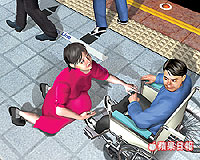
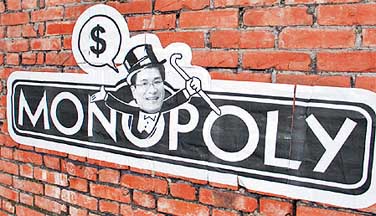
(in translation) ... The transformation of the ancient capital is a very important matter. Yet one after another strange-looking building appeared in the name of 'modernity' while totally ignoring the organic relationship between the buildings and the humanistic surroundings. The people in the "surrounding area" and the experts who care about the "surrounding area" had no influence on the policy decisions. The 'arbitrariness' and opulence of such a huge but soulless engineering project occurred due to the opaqueness of the decision-making process, the secretiveness of the budget and the absence of monitoring. To invest all of the nation's efforts into a sports meet that lasts 16 days while sacrificing all the other urgent programs is because the concept of 'nation' supersedes all other values. As to the costs and benefits of this effort, or the long-term interests of society, or the sacrificing of the interests of certain groups, these things cannot be doubted or criticized, because China is still a country in which basic policies cannot be doubted or criticized ...
The author of the Internet essay "The Olympic Gold Medal Trap" used this formula to estimate the costs: in 2004, China won 32 gold medals at the Athens Olympics. How much did each gold medal cost? At the 1988 Olympic games in Seoul, the Chinese sports authorities had a budget of 1 billion RMB. At the 1992 Barcelona games, the budget increased to 3 billion RMB. At the 2000 Sydney games, the budget was up to 5 billion RMB. By extrapolation, China probably had to spend 20 billion RMB over the four years leading up to the Athens games. If the final result was 32 gold medals, then each one costs around 700 million RMB. "This is the most expensive gold medal in the world."
The author asked: "When the overseas Chinese started Project Hope to build Hope elementary schools in the impoverished areas, it only cost around 200,000 RMB to build a school. If it costs 700 million RMB for a gold medal, then that sum could have been used to build 3,500 Hope schools. If each school accommodates 100 students, then the money could have helped 35 million school children to become literate. If the 20 billion RMB spend for the Athens game were used for education, there would be 100,000 Hope schools for 10 million children. If you were in the leadership position in charge of the 20 billion RMB, would you choose 30 Olympic gold medals or education for 10 million children?"
This formula is obviously terribly flawed, but the underlying problem is quite true. How did the 32 gold medals come about for China? What is the price? Up to now, the Chinese sports system is based upon a national economic plan in which money is invested for elite training methods. The government used taxpayers' money to run various levels of schools and almost all the medalists come from this system. ...
What the people of Taiwan can learn from the Beijing Olympics is that the global vista and vision of the Chinese come from their dedication and persistence and their seriousness and commitment on building up the infrastructure. But, sorry, this is not about Taiwan applying for the 2020 Olympic Games or sending 20 children to learn soccer in Brazil. That type of "Great Wall" aesthetics is not what Taiwan needs. In this regard, it is the smallness, backwardness and focus on the grassroots common folks in Taiwan that should give food for careful thought by the grand Beijing.
A 75-year-old woman on welfare was driven to provide sexual services for $20 because she could not get by on her dole payments, a magistrate was told. Wu Wei-geen, who earlier pleaded guilty to soliciting for an immoral purpose on March 20, yesterday refused to accept a probation report that recommended she receive psychiatric and psychological treatment. Wu told Chief Magistrate Patrick Li Hon-leung that she knew her actions were wrong, but committed the crime to help make ends meet. She insisted she did not need any medical attention.
From the Chinese-language newspapers, here is what Wu actually told the chief magistrate:
- (Ming Pao) "大家中國人,你放過我吧,我這麼老﹗" (We're both Chinese. You spare me. I'm so old.)
- (Apple Daily) "我 尊 重 你 都 希 望 你 尊 重 我 , 中 國 人 要 幫 中 國 人" (I respect you so I hope you respect me too. The Chinese must help each other)
- (Apple Daily) "我 唔 睇 精 神 心 理 醫 生 , 我 都 有 人 權" (I am not seeing a psychiatrist. I have my human rights)
- (Apple Daily) "英 女 皇 先 至 有 精 神 病 , 佢 伊 拉 克 殺 咁 多 人" (The Queen of England is the one with a mental disease. She killed so many people in Iraq)
- (Sing Tao) "我同你講人權,英女皇殺好多伊拉克人,英女皇先有精神病,你幫英國人,你受賄﹗" (I'm talking to you about human rights. The Queen of England has killed a lot of Iraqis. She is the one who is mentally ill. You are helping the Englishmen. You were bribed."
- (Sing Tao) "我無精神病,你唔好冤枉我﹗英女皇殺好多伊拉克人,你幫英國人同我作對﹗" ( I am not mentally ill. You must not treat me unjustly. The Queen of England has killed a lot of Iraqis. You are helping the Englishmen against me)
- (Sing Pao) "亞曾(特首曾蔭權)做多善事,想辦法幫窮人" ((Chief Executive Donald) Tsang should do more good things and try to help the poor)
According to the Chinese University of Hong Kong Institute of Asia-Pacific studies poll of 820 respondents:
(SCMP) Those backing Mr Tsang for a second term fell from 75.7 per cent to 67 per cent over the past month. Those opposed rose 2.9 points to 14.4 per cent. About 19 per cent said they did not know. Although Mr Tsang still enjoyed relatively high public support to serve another term, the level of this backing continued to drop, the institute said. Support for his re-election dropped even further, down 3.3 percentage points from May to 53.6 per cent this month if Mrs Chan joined the race. But Mrs Chan's support fell by 2.7 percentage points to 24.5 per cent. Those who said they "don't know" doubled to 14.6 per cent, the institute said.
At the Hong
Kong Media Workers Forum, the following was posted: "(in
translation) Chinese University of Hong Kong public opinion poll: If
"Sneaky Tsang" and "Unfaithful Chan" were to run for the
Chief Executive at the same time, who would you support? Tsang was
supported by more than 50%, but 3% less than in the previous poll.
Chan had been getting more exposure lately but her support fell instead into
the 20's and 2% less than in the previous poll. While it was logical
for Tsang to have come down due to the negative criticisms, it was suprising
for the very active Anson Chan to fall down! The Apple Daily column
can continue to masturbate as the Anson Chan bubble burst on July 1st and
her public support has been falling for a formal bankruptcy."
Now I really don't care about the above. Rather, I was amused by the
following response to the post: "屌臭你全家!土共左仔!你老母含家仆你個爛臭街咁撚多野講我指撚住你個尻頭話尻緊你個撚樣丫!仲望喎你條懵尻!!屌你老豆呀,屌你老母呀,屌你仚家呀,屌你個仆街屳家富貴!!!屌到你屎眼合唔埋個西又反撚曬!!!頂你個胃,你就有胃出血,該你死!!都唔能知你係乜鳩 --
水!你地d仆街仔出來仲就死鳩撚晒喎!!!!仆你個臭能街正一死淨種毛又無條又要扮撚哂野死低b白痴仆街仔on撚鳩痴撚線食蕉啦你打你老母屌西
.食撚屎啦你老母!!屌臭你呀!!!戇鳩鳩!!!俾我堉你六七你全家."
I choose not to translate this long stream of obscenities. I will only
note that this is a serious flaw of the forum format, as the original
argument is usually brief and the response is gainsay by invectives.
This particular saying is not even interesting because it has appeared
multiple times already and is merely being recycled by copy-and-paste.
However, this is what passes as public discourse on a forum for professional
media workers. This is not to say that this forum is useless. In
fact, the forum is very useful but one has to filter out a lot of irksome
noises.
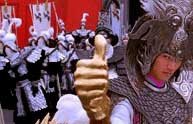
Teenage internet spies recruited by copyright enforcers have tracked down 1,200 "seeds" -- data sources used for illegal downloading using the BitTorrent system -- since they started work under a pilot scheme in February.
Commissioner of Customs and Excise Timothy Tong Hin-ming said the work of the 800 youngsters had enabled all but 1 per cent of the illicit files to be removed or invalidated. The rest were being investigated. Mr Tong announced the figures as he launched an expanded Youth Ambassador Against Internet Piracy Scheme, under which 200,000 youngsters aged between nine and 25 would become "gold fingers" on the lookout for potential BitTorrent seeds of copyright works, including movies and music.
The spies come from 11 youth uniformed organisations such as the Scouts. Each will be given a password to log on to a customs webpage when they spot a seed.
(New York Times) Dare Violate a Copyright in Hong Kong? A Boy Scout May Be Watching Online. By Keith Bradser. July 18, 2006.
Emily Lau, a pro-democracy lawmaker, said that the government should release more details of the program to the public for debate before proceeding, and should be particularly wary of having children report offenders to law enforcement. Public education I support, but to get young kids to do the reporting? she said. I feel uneasy about it.
Christine Loh, the chief executive of Civic Exchange, a policy research group, said the government program would have to be managed with particular care because of its faint echoes of the Cultural Revolution in mainland China, when children were encouraged to inform on their parents and other relatives.Well, here is the first casualty of this Cultural Revolution. (The Sun) An anonymous forum poster asserted that a Youth Ambassador named Su set up her personal blog to offer free downloads of pirated material. Thus, she was enabling and entrapping others to commit crimes by running her own illegal site. That post generated a huge response from the public who called her "two-faced person (雙面人)" and "public criminal (公眾犯人)" and doubly guilty for knowingly breaking the law. Here is a screenshot of the exposé on her (via 知日部屋).
(in translation) The public service examinations are presently hotly contested in China and nobody can deny the high standing of public servants. But there are also people who are saying the opposite. According to recently released statistics released by Xinhua, the average income of Chinese public servants is 15,487 RMB which is slightly lower than the 16,024 RMB of all urban Chinese employees.
On July 17, Hangzhou Daily News published a news report that led to a strong opinion response: According to a research study led by Zhao Guoqiu, the director of a certain hospital in Hangzhou, public servants feel more isolated and insecure than the masses. Therefore, the study recommends that society should offer a reasonable psychological support system for public servants, so that they can "hold a lawyer in the left hand and a psychiatrist in the right hand." All the media reports emphasized this conclusion -- public servants not only receive lower pay, but they can be damaged easily and therefore public service jobs have few takers. Of course, this is vastly different from the public perception.
Thus, some observers drew this conclusion: at this critical moment for the reform of wages for public servants, the purpose of these press releases is to provide a rational basis for wage increases. Therefore, these types of news about the "dire situation" of public servants will continue to come out in the form of numbers and expert opinions. These comments may seem to denigrate public service work, but they will actually help out immensely. Indeed, if they don't get more pay, they won't have the money to hold a lawyer in the left hand and a psychiatrist in the right hand.
Lian Yue also noted that when his essay was published at NetEase, it drew almost 4,000 comments. As of July 24, NetEase has deleted the essay and the comments. Lian Yue commented: "It seems that somebody was unhappy."
P.S. There was another deletion in the last paragraph: "For the sake of national interests and progress, I hope that the public servant wage reform would result in a wage reduction, even if it is only 10 RMB per month. This small sum will inform the public that the public service system is not just a system of special privileges in which wages only go up and never down. It will be worthwhile."
In our daily lives, we fear seemingly random violence (terrorism, kidnappings) more than we fear known threats (car accidents, bathtub drownings), even if the known threats are actually more objectively dangerous. Perhaps that's what's going on here. While a threat from NARAL or the Club for Growth is a known quantity that can be dealt with, no one has quite figured out what sorts of things might set off a blog lynch mob. If you knew, you could craft some clever plan to triangulate around it, but if you don't, you have to watch every word that comes out of your mouth, always in terror that you might say the one thing that gets them screaming for your head on a pike.
Or something like that. I'm just riffing here. But if this is true, it means blogs aren't really a long term threat after all. Someone just has to figure out how to predict their behavior better. And trust me on this someone will.
(in translation) "Over the past thirty years, I have not changed how I felt about the great Tangshan earthquake." In Qing Gang(錢鋼)'s heart, this is still the greatest natural disaster of the 20th cenutry, with more than 200,000 deaths and more than 100,000 injured. Yesterday at the Book Fair, Qing Gang gave the talk: "Me and My Tangshan -- The Thirtieth Anniverary of the great Tangshan earthquake." In his memory, each incident may have been trivial and negligible, but the sum total became a lively history weaved with blood and tears.
Qing Gang operated the screen projector. He looked at each photograph and quietly recalled the situation thirty years ago. Soon after the earthquake occurred, Qing Gang rushed to Tangshan to assist. "Before I left, my mother told me to look up the old family friend 'Uncle Jiang' and his family. But at the time, Tangshan had been leveled and there were no road or direction signs." Luckily, Qing Gang heard a familar voice in a hospital and it was the Uncle Jiang that he was looking for!
"At the time, Uncle was wearing a torn and filty t-shirt. I immediately took off my jacket and let him wear it. Uncle would continue to wear it since." That happened thirty years ago, but Qing Gang recalled it yesterday with certainty and clarity.
"The military personnel who arrived at the scene began digging with their bare hands until their fingernails fell off." "The people who were waiting for help could not nothing except to continue to wait ..." Such were the scenes at the time. Apart from what the eyes can see, Qing Gang also remembered the smells of rotting corpses and medicines. "Under the blinding sun, the corpses were rotting. Tangshan was full of the pungent smell of death." At the hospital by the river, Qing Gang could smell the medicine even before he reached the entrance ...
Qing Gang's narrated story was shocking, but there were only more than a dozen of so people attending his talk yesterday, of which half of them were local middle school students, plus tourists from Guangzhou.
P.S. A reader asked, Why are middle-school school students and Guangzhou tourists interested in Qian Gang's talk? Here is the staff biography from the Journalism and Media Studies Centre at the University of Hong Kong.
Qing Gang Best known for his tenure as managing editor of Southern Weekend, China's most progressive newspaper, Qian Gang is regarded as one of China's foremost investigative journalists. Qian was also a co-creator and executive editor of "News Probe," CCTV's pioneering weekly investigative news program with nearly 20 million viewers. Qian collected historical documents for Chinese Boy Students, a book and five-hour documentary series on 120 young Chinese students sent to universities in the United States by the Qing government in the late 19th century. He is also the author of "The Great China Earthquake," an investigative report on the 1976 earthquake at Tangshan in which 250,000 people were killed.
Thus, in Guangzhou, there are still people who admired Qian Gang and his contributions before Southern Weekend was castrated.
Meanwhile, in Hong Kong middle schools, "The Great China Earthquake" is prescribed as a textbook, and is one of the students' first detailed introductions to their mother country. This choice is obviously criticized by some as presenting a 'negative' image of China. But there are others (including myself) who disagree vehemently and regard this type of book as much more effective in promoting love for the nation and its people than those 30-second television ads ever will. That is why I wish I could be there.
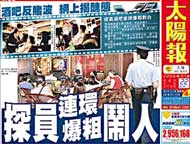
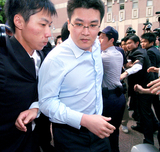
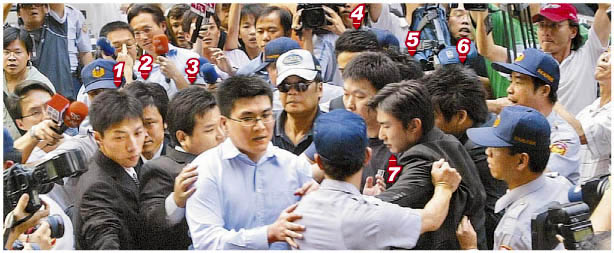
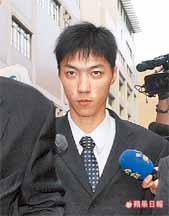
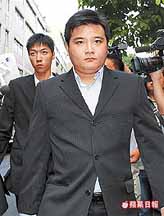
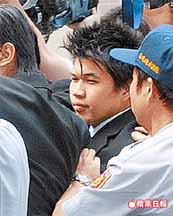
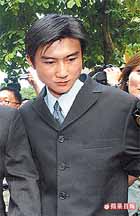
(in translation) Among Taiwan's traditional media, news reporting and opinion commentary are getting mixed up due to lack of understanding about journalistic professionalism. This has done great damage to public trust in the media. Presently, the online newspaper websites are carrying blogs written by the editorial staff. This will not save the media empire but will destroy any remaining public trust.
The newspaper industry has been encountering hardship recently as the Internet has given a two-pronged attack on the survivability of the newspaper media. On one hand, young readers are getting their information more often from the Internet. The print media no longer has the monopoly on information, and the number of their readers have declined instead of growing. On the other hand, the advertisements that the newspapers depend on have slowly drifted to the cheaper and more convenient Internet. In the United States, in all cities in which craiglist.org is present, the newspapers lose money because most of the advertisers on craiglist.org did not have to pay and they reach a bigger audience. These two factors create a vicious cycle in which there are fewer subscribers and fewer paying advertisers. Things are only going to get worse for the newspapers.
Under these circumstances, the print media businesses around the world look for creative answers. Some of the traditional families have sold their businesses (for example, the Los Angeles Times was sold to the Chicago Tribune group). Some of them started multimedia empires, such as the Murdoch empire of newspapers, television, movies and websites. Some of them entered the Internet business; for example, The Wall Street Journal set themselves up as the largest newspaper in the United States by virtue of its online subscribers. But no matter what they do, none of them would sell out their public trust like the Taiwan traditional newspapers are doing. The advantage of the traditional newspapers is that they have established trust for their editorial products over the long term. A New York Times report is superior to several tens of thousands of nonsensical blog essays because the readers trust the New York Times brand.
Reporters and editors can have their own peculiar ideas and that is their personal business. But once they write them down inside their newspaper, these represent the position of the newspaper. In Taiwan media, it is not unusual to see reporters insert their own opinions into their reports, and this is wrong.
Suppose the truth of an event can be different depending on how the reporter writes it. In the long term, then, will anyone trust any news report anymore? At the esteemed Wall Street Journal, the publisher writes open letters to the readers through the course of the year and more than half of them emphasize that the newspaper is trying to separate opinion commentary from news reporting. The mission of news reporting is to provide the true facts whereas opinion commentary is intended to spread ideas. It is professional media management to separate the two!
The traditional newspaper people in Taiwan had some good principles, but the new generation of managers have these pecuiliar notions that are selling out any remaining public trust. Reporters and editors are now allowed to write blogs every day in the belief that they can retrieve the lost readership or sell more ads. But when the readers can see the blog posts with the clearly delineated positions and then they see the news report under the reporter's name, can they still believe that the report is fair and objective?
Worse yet, the reporters' blogs are presented in the name of the newspaper. Some of them are pro-green and others are pro-blue. Does this media entity have a position? If the reporter goes overboard on something, the readers may mistake it for the position of the newspaper and then propagate it.
Statement Fox News Viewers:
PositiveFox News Viewers:
NegativeNon-Fox News Viewers:
PositiveNon-Fox News Viewers:
NegativeDirection of country 57 33 34 58 Bush approval on Iraq 60 39 21 72 Bush approval on Economy 65 27 27 61 Bush approval on Terrorism 74 23 36 56 Bush Overall Approval 59 29 25 66 Bush tells the truth 64 29 27 63 Iraq war made US safer 54 28 21 48 Iraq war worth it 54 33 25 69 So are the media out there to present objective information in a fair and balanced way? Or are they out to reinforce pre-existing attitudes and opinions?
(in translation) Some pro-green scholars cannot stand it anymore and signed a joint public statement to ask President Chen Shui-bian to resign. This created a resonance that was much more powerful than when the pan-blue camp tried to recall Ah Bian. On July 17, Ah Bian was supposed to host a dinner at the Grand Hotel with all the DPP and government senior officials in order to relieve the pressure from the pro-green scholars. But many green legislators elected not to attend because they didn't want to be known as having been patted on the head and pacified (摸 頭 招 安) by Ah Bian. So Ah Bian had to cancel the event. It is easy to imagine Ah Bian's embarrassment.
The pro-green scholars' demand for Ah Bian to step down was more powerful than any recall or no-confidence effort by the blue camp and more damaging to the DPP. The various attempts by the blues to dump Ah Bian were unconvincing. No matter whether Ah Bian was good or bad, corrupt or clean, the blues would have opposed him anyway. There are no rights or wrongs and that is why the blues lack trustworthiness and legitimacy. But now the pro-green scholars have collectively demanded Ah Bian to quit, and it is hard to use those excuses.
All those greens who supported Ah Bian during the election are embarrassed and disappointed and feel that they were let down; they are also scorned at by the blues and feel bad. But Ah Bian thinks that he can still hijack these people to continue on. That is why these people are now angry and want Ah Bian to resign. They hate Ah Bian for being so confident that these pro-green people have nowhere else to go because they cannot turn to the blue camp. This is a terrible feeling and that is why they have come forward to demand Ah Bian to resign.
Over history, whenever political leaders run into crises, they usually seek to divert attention in order to survive. A common ploy is to create a crisis from the outside. But manipulating nationalism is dangerous and can blow up. The 1982 Falklands War is an example. At the time, Argentinian regime of Galtieri was shaky with severe economic inflation and social stability. In order to retain political power, the government inflamed nationalism and attempted to take over the Falkland Islands of the United Kingdom. This led to a war in which Argentina was defeated badly and Galtieri was ousted.
President Chen is now backed into a corner and he is capable of doing terrible things. After meeting with the pan-green bosses several days ago, Ah Bian indicated that the constitutional reform and the renaming of Taiwan are among his goals for the next two years. Why does he want to do these things? First, this is in exchange for the support from the post-independence bosses; second, this is to consolidate the deep-green base; third, this is to take revenge against the anti-Bian elements by making them angry and hurt; fourth, this is to infuriate China and the United States and create an international crisis which will divert attention away from the corruption cases and the pressure for him to resign. The price will be horrendous. Without even having initiated it yet, the stock market index has dropped by 170 points yesterday.
Ah Bian knows that there is no chance that the constitution reform and renaming of Taiwan can get through the Legislature. The 10% public support for these two items will not allow him to do that, but he still insists on moving forward. This is a manifestation of the fear of a trapped animal which intends to treat the people as straw dogs. Still, we can still use our imagination to look ahead.
The constitutional reform and the re-naming of Taiwan seriously go past China's bottom line (because they mean Taiwan independence by law) and it will provoke a severe response from China. The United States will take this as a betrayal of Ah Bian's formal promises and take action to sanction Taiwan. The stock market will drop under 3,000 points, the economy will be ruined, society will be in chaos, political storms will be turbulent and the people will be scared. Then Ah Bian can properly declare a state of emergency, impose martial law, arrest opponents, cancel all elections including the 2008 presidential election ...
Alright, this is where we will stop and we don't want to visualize how China will invade Taiwan by force with the tacit approval of the United States ... the independence bosses and the deep-green supporters of Ah Bian often think in self-reinforcing close-minded groupthink and believe that they are right. This causes Ah Bian to think that he is absolutely right and then the tragedy gets out of hand.
Too many tragedies in history occur because people are locked into close-minded loops. Right now, Ah Bian's small close-minded group is moving in that direction. We must prevent this tragedy from happening before the point of no return and that would be for Ah Bian to resign for the sake of Taiwan.

Brooks applies the fear stimulus (in a gentle way, admittedly, but then this is PBS.) He warns us that "they" (meaning, presumably, the armies of jihad) are "on the march" -- neatly conflating in one plural pronoun Shi'a and Sunni, religious and secular, Lebanese politician and Palestinian nationalist and Iraqi insurgent and Al Qaeda terrorist. They're all on the march, like the enemy storm trooper in an Ingsoc propaganda poster:
It had no caption, and represented simply the monstrous figure of a Eurasian soldier, three or four metres high, striding forward with expressionless Mongolian face and enormous boots, a submachine gun pointed from his hip. From whatever angle you looked at the poster, the muzzle of the gun, magnified by the foreshortening, seemed to be pointed straight at you.
This is commentary only in the same sense that a front-page editorial in People's Daily on the counterrevolutionary capitalist conspiracy, circa 1965, counts as commentary. It does demonstrate, however, the neocon skill at constructing grand meta-narratives out of carefully selected pieces of reality, glued together with lies, distortions and apocalyptic rhetoric.
Brooks is actually one of the most effective practioners of the art because he's usually so low-key about it. He doesn't rant -- or rather he does, but typically in a mild-mannered, reasonable tone of voice, without the piercing shrieks and flying specks of spit found on the talk radio shows or the right-wing extremist blogs. Think of it as the talking head show approach to doublethink.
That doesn't, however, make it less dangerous -- just the opposite, in fact. When an establishment drone like David Brooks starts sounding like the speaker at a five-minute hate, but on Quaaludes, it shows that the neocon version of Minitrue is pulling out all the stops.
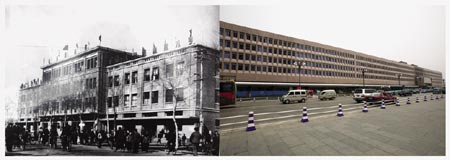 (Tangshan
Emporium)
(Tangshan
Emporium)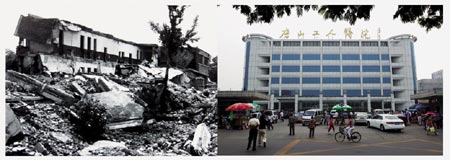 (Tangshan
Workers' Hospital)
(Tangshan
Workers' Hospital)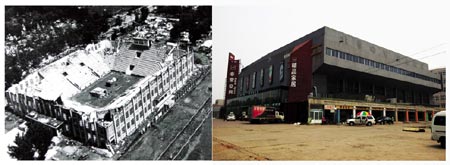 (Tangshan
Workers' Sports Auditorium)
(Tangshan
Workers' Sports Auditorium)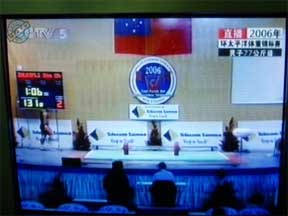
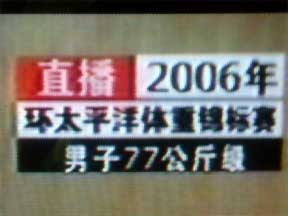
The so-called rational bottom line is that the sales price of a newspaper cannot be less than the price offered by waste paper recycler. During the bloody Nanjing price war, the vendors shipped the newspapers to the recycling centers as soon as the newspapers were delivered to them because the sale price for a newspaper was 0.20 RMB while the recyclers were paying 0.24 RMB. Even unpopular newspapers were favored and the vendors would order 500 to 600 copies because they were making money.
During the Nanjing price war, the 'circulation' of the newspapers jumped, but the advertisers were the fools for investing their money to subsidize the newspapers. In the Kunming price war, it is even worse because the war was conducted for annual subscriptions instead of retail sales and the effects will be longlasting. This was a matter of life and death.
More than twenty days after the Kunming price war began, the Propaganda Department has imposed a halt ...
In my view, the government order as well as the academic condemnations were unnecessary. I am not someone who wishes for chaos under heaven, or a human suicide bomber, or a youngster who wants to shock the world with his words. I say this for two reasons:
First, in the Chinese newspaper industry, the problem is not too many but too few market-based actions; the problem is not too little government management but too much annoying intervention. In any kind of competition, pricing is the most effective method. Price wars are seldom seen, but they are the most normal way. Media moghul Rupert Murdoch is the most famous and experienced expert.
Second, there are too many (and not too few) newspapers in China. Cut-throat price wars are the normal results when some newspapers become unprofitable and are elimnated in the marketplace. This is the essential step through which the newspaper industry moves towards normalization and improvement. When a newspaper closes down (such as the former Independent Evening News and Central Daily News), I feel an emotional regret and a rational cheer ...
[in translation] ... I spent so much time to write about these two American television talk shows because (1) I am a fan of theirs and (2) I believe that their absurdity contains certain true goals for media. Except in a 'lawless' place such as America, such programs are probably doomed anywhere else. They will always be regarded as alien by the mainstream, but their antagonistic pose against the authorities should be the direction and path for current affairs commentary. They will never be friends with any president and they will never want to be friends with those in power, even if these people are sometimes right. Current affairs commentary is a form that is full of "biases." It takes a stand, it has a tendency, it is not a judge, it is not the conciliator standing aloof and it is always the friend of the weak, even if these people are sometimes wrong. I don't care about anyone else, but this setup fits me well and it is my path.
Actually this is helpful towards current affairs commentary. You think about it: those in power will always have all the help. They have numerous advisors and they are able to present the affair perfectly with the help of these people. If you fall for them and applaud, wouldn't you be embarrased to death later when the truth comes out? Those who are weak may exaggerate their hardship and helplessness, but hardship and helplessness exist for them after all. If you speak on their behalf, you will probably be right. From the angle of the balance of information, the powerful do not need your help for they can produce enough favorable information about themselves whereas nobody will even pay attention if the weak threatened to kill themselves. Therefore, I want to become a biased person. Sometimes, I will pretend that I am neutral and help to mediate; but I will stick out my hand secretly and squeeze hard on the dick of the powerful during the chaos (趁乱掐一把强者的鸡巴). If my essay is poorly written, then I must not have been biased enough.
Anyway, I mean to say that as a veteran columnist at the Southern Metropolis Daily, I am neither objective nor neutral. In fact, I have a tendency of following the wayward path of darkness. But even with an author such as myself, Southern Metropolis Daily is willing to offer me column space each week to express my views and they even pay me a fee. They have also collected my essays into the book "The Age of Hot Words." This shows that Southern Metropolis Daily is accomodating diversity. There are many viewpoints that you may not agree with, but that is the unique proposition of Southern Metropolis Daily. By comparing the various "extreme" opinions, the readers can derive the largest value on any affair and then efficiently reach his own conclusion. If a reader can only read viewpoints that he agrees with or things that he knows already, then that newspaper must be a brainless piece of waste paper.

Four days ago, I added a Google ad on my blog. Today, I checked and found out that I have earned US$2.94. That's quite a bit. At this rate, I should be able to buy a color television set at the end of the year. Is this the profit model for bloggers? Anyway, the money is there for the taking. I won't be rich with it, and I won't be poor without it.
But I welcome people to take out ads at my blog. Based upon the current statistics, there are about 2,300 links to my blog. The daily number of visits is more than 10,000, compared to the 3,000-4,000 at my previous blog. I have now found out that this number is inaccurate (based upon the income from the Google ad).
But I think that the ad effectiveness here should be good. You think about it. A fashion magazine has a circulation of about 10,000. Even if you say that each magazine copy has 10 readers, that would just be 100,000 persons in total. My blog has more than 300,000 visitors per month.
So if anyone wants to sell something (such as someone's special album or some medicine to cure feeble-mindedness), you can try advertising over at my blog.
Are they terrorists?
The night sky of Beirut, covered with thick smoke (AP via UK Yahoo! News)The continuous so-called bombardment of Lebanon by Israel is "the right to self-defense" according to some people. But even if soldiers were kidnapped, or navy ships bombed, or civilians killed or injured by rockets from armed forces not belonging to any nation, something like this should not have happened even as responsibility is assigned to the enemy, right?
Sorry, even after I read this kind of news report and this kind of photographs (I will only supply the links down below because they are too revolting), I have only posted a question in the title. My anger will not be mentioned.
Photo 1 Photo 2 Photo 3 Photo 4 Photo 5 Photo 6 Photo 7 Photo 8
Postscript: Some of the above photo links are dead already. So here are some more that are saved on this website: Photo A Photo B Photo C Photo D Photo E Photo F
Lawyer: Is there anything you have to say about the allegations in the indictment?
Li: Yes. I wrote the essays. I admit it. But I did not send them out through the hotmail account. The email was sent by my son. He did not know what was in it. I wrote these essays out by hand first and then I entered them into the computer. I don't know how to use the computer too well. I wrote these essays in order to practice typing. When I saw my essays entered into the computer and then published, I had a sense of accomplishment. That is why there were the hand-written versions and the electronic versions.Lawyer: In terms of your thinking, what made you write these essays?
Li: There are three reasons. First, I am a journalist for a party newspapers. I write lies and clichés all day and I feel repressed. I want to be able to say what I think. Second, the reality inside China is about inequality of wealth, corruption of officials, unjust administration of law, restriction of speech, etc. This may be feel that Chinese society should be transformed. As an intellectual, I have the obligation to criticize and expose these phenomena. Third, I was able to obtain some information from overseas through the Internet. I was also influenced by certain liberal intellectuals and my thinking has changed.
Lawyer: How were you found out?
Li: My first essay was "On Becoming an American Citizen in Spirit." I did not know how to use a computer yet. My son helped me to send it out. Four days later, I was published at the Yibao website. I found out that it was published under my original name Li Yuanlong. I was afraid that I had revealed myself. So I asked a friend to call the editor to change the name to Night Wolf. Later on, all the essays were published under Night Wolf or Yehaolang. I guess that was how the National Security people found me.
Lawyer: I believe that you misunderstand the law. Your critical essays of the Chinese Communists did not violate the law and they do not constitute subverting the nation. To say that your essays fabricate, distort, exaggerate the facts, incite to subvert the national government and to overthrow the socialist system is unfair and lacking in factual foundation and logical basis.
Li: Yes. They said that I fabricated that the 80 million people died under the Chinese Communist regime and tanks rolled over and killed students during the June 4th incident. I obtained that information from the Internet. They said that I fabricated it. They should produce the true authoritative material. They did not have any comparisons. So how can they say that I made it up?
Lawyer: You can say all that in court. We will plead a case of "not guilty" in accordance with the law.
"The court filing goes into unusual detail about two episodes in which FBI agents observed the pair in a car with Ms. Cheng "in the front passenger seat leaning across towards the defendant with her back facing upward and head below the line of observation." Prosecutors contend that after one of the couple's allegedly-intimate vehicular encounters, Keyser called Ms. Cheng on her cellular phone and said, "The food was good. The wine was good. The champagne was good, and you were good."
Prosecutors said Keyser "became infatuated" with the young Taiwanese agent, writing in an e-mail, "Having my arm around your shoulder, your head resting against my shoulder, and then on my chest, your hand in mine for a couple of hours while you were in Dreamland' was more than ample compensation."
The court filing indicates that Keyser acknowledged kissing and embracing Ms. Cheng. He said that on at least one such occasion Ms. Cheng was nude, but he denied the encounter included any sexual act.... While she was allegedly involved with Keyser, Ms. Cheng was engaged to and reportedly married a British man, Christopher Cockel, who served as the Washington correspondent for an English-language Taiwnese newspaper, the China Post. The government said Ms. Cheng's other relationship added to the government's "concerns regarding her motivation for engaging in an intimate relationship with the defendant."
Not very juicy? Too matter of fact? We can always add the illustration from Apple Daily:
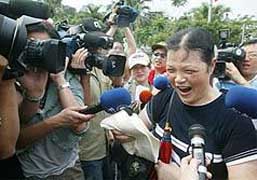

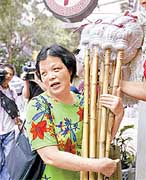



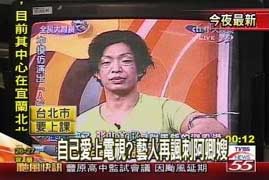
The idea that the name of a person would determine his/her fate is quite familiar to the Chinese people. We thank our ancestors for having invented several thousands words for us, so that the giving of names becomes an art. When married to statistics, this becomes a science.
Recently, a Shenzhen transportation company allegedly refused as a matter of policy to employ drivers whose names contained the words 勇 ("yong" meaning valiant) or 猛 ("meng" meaning fierce). The reason was that from a statistical point of view, these two words occurred most frequently among company drivers who got into accidents.
Now, if the words "yong" and "meng" were really bad for drivers in China, there should not be many left by now since most of them would have died in the line of duty. But nevertheless many of the survivors so far have drifted over to this particular company in Shenzhen to the point where a statistically significant number of them got into accidents. So what is special here? The drivers? Or the company?
By the way, there is another matter of 'commission' with the employment agency of that company. According to information, if you pay enough, you can still get hired even if you have "meng" or "yong" in your name. So what else is special here? Another quick way to make a buck from people with common names?
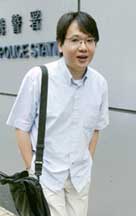
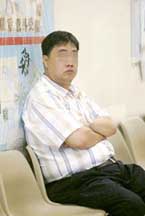
Whenever there is an event without definitive evidence, the Internet goes amok. Wenxue City has multiple versions of netizens who let their literary imagination go wild. Here is the translation of the first version from the Tianya forum (and I am too exhausted to do the others, but your own imagination will probably do even better anyway).
I have not been back to Beijing for a while. This time, I was back on business and I met some firends for drinks at a restaurant in Xin Street in the western city district. There were not too many people there, but there was one table of eight or nine (including men and women) who had been drinking and were quite boisterous. Occasionally, they smashed wine glasses and so they probably had too much to drink.
At around 1am, three men (two whites and one Chinese who appeared to be the interpreter) came in. The two foreigners were refined in manner and showed a steady demeanour. They ordered some BBQ dishes and a few bottles of beer.
At that time, the men and women at that table began to yell 'Fuck you' at the foreigners and then laugh out aloud.
The three men ignored them as if they did not hear anything. But that group of people went further and they were saying even more awful things. The two foreigners said something to the Chinese man, who then went over to the group and demanded an apology to the foreigners. The group was arrogant and kept saying, "Fuck your mother! Fuck your mother." The man turned around, spoke to the foreigners for a minute and then they paid the bill and walked out.
At that time, the group of men and women started screaming "FUCK YOU" and "Fuck your mother." They started to throw beer bottles and chairs at the foreigners. We thought that the group was over the top, but we couldn't stop them. Obviously, they had too much to drink after going to some disco.
At that moment, the interpreter turned around and rapidly headed towards the group. There was a flash of the knife and one man was moaning down on the ground. The group reacted quickly and picked up chairs and beer bottles to attack the interpreter. We only saw the knife flashing. In less than one minute, there were seven or eight men lying on the ground, and there may even be a woman. Then the interpreter turned around. At that moment, we saw that he had a foot-long knife in his hand. He went back to the foreigners and they left unhurriedly.
My friend called the police. At that time, I finally recovered my sense. The knife had been too fast. Within ten seconds or so, almost ten people at the table were down while the interpreter was untouched.
On the way back, my friend insisted that the Chinese interpreter must have been a bodyguard for the two important foreigners, because the man was too fast and professional with his knife play.
I thought that those people were dead for sure. But when I checked today's news, none of them were in mortal danger. At that moment, we were even more impressed. The true expert is not the mass killer; it is someone who maims without killing!
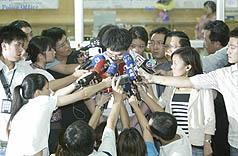
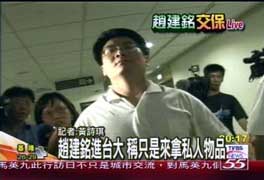
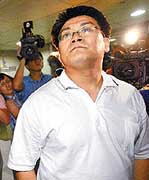
(in translation) "Democracy cannot be exported" is an absurd theory that has been propagated on the international political stage for several decades. But looking at it now, democracy can not only be exported, but it ought to be launched with guided missles. When the war in Iraq began, I predicted that within three to five years, a newly born democractic Iraq will emerge from one of the oldest cradles of human civilization.
On June 16, the British Prime Minister's office announced that the United Kingdom, Australia and Japan will turn over the security controls of the Al Muthanna province to the Iraqi forces. It was announced that the Japanese Prime Minister will announce on the next day that Japan is planing to withdraw the Japanese Self-Defense forces from southern Iraq. The war began in 2001 and the government power was transferred in 2006! I will now quote Jesus Christ's words: "Mission accomplished!"
Never mind that the war in Iraq was started in 2003 (and not 2001 as Jiao says), but there are alternate versions about what is going on in southern Iraq today (you can google to your heart's desire). For example, from Asia Times (May 20, 2006):
Alarms are ringing in London that the British army is being severely defeated in Iraq, as the city of Basra (where its 7th Armored Brigade has been based since 2003) slips rapidly into uncontrollable sectarian violence.
Basra has always been troublesome. From there, two uprisings were launched against Saddam Hussein in 1991 and 1999, only to be crushed with great force by the currently imprisoned dictator. British officials, though, refuse to accept the reality that since entering the city on April 6, 2003, they have done nothing to eradicate sectarian militias, and violence is now exploding in the southern Iraqi city, with nobody able to bring it to a halt.
Unrest escalated when a British helicopter was shot down in Basra on May 6 by a shoulder-launched missile, killing five British troops. British Defense Minister Des Browne, learning from his US counterpart Donald Rumsfeld, played down the event, calling it "an isolated incident" that had been "magnified" by the press. Coinciding with Browne's statement was a roadside bomb that killed two British soldiers in Basra this Monday, bringing the number of British deaths in Iraq since 2003 to 111. British troops can no longer travel on foot, for fear of ambushes, and have to use helicopters as taxis.Basra, a predominantly Shi'ite city, has been won over from the British by the rebel-cleric Muqtada al-Sadr. The young rebel gained the minds and hearts of the inhabitants of Basra when he began his rebellion against the Americans, and then-prime minister Iyad Allawi, in 2004. The people of Basra originally welcomed the British as liberators, but the expression on everybody's face was: "Thank you for what you did and for helping us get rid of Saddam. Now, when are you leaving?"
Muqtada found an excited crowd willing to listen to his anti-Anglo-American rhetoric in 2004-05 and was able to recruit members of the British-trained Iraqi police force in Basra into his Mehdi Army, where they now serve as undercover agents for Muqtada. By day, they officially patrol the streets and gather information about logistics, and by night, they don the costume of the Mehdi Army and pick fights with traditional enemies of Muqtada.
Today, Muqtada's pictures are plastered all over the streets of Basra, in the police station and in the homes of private citizens, who pray for his long life and good health, claiming that he is saving them from both the occupation and the Sunni community. He has particular influence among the city's poor and youth. A Basra under Muqtada's control, however, means a mini-theocracy in Iraq. Alcohol is banned and veiling is becoming a must. Women are warned to put the veil on when they venture outdoors in Basra to avoid being harrassed by armed militias. Merchants who sold alcohol have been executed or attacked.... The Americans are speechless about Basra. For long, there was a conviction in the occupying forces that Basra was a relatively quiet and safe part of Iraq, because of the efficiency of the British in keeping control. That impression has been destroyed, yet the Americans cannot send troops to Basra. This is too difficult because of their concentration in other parts of Iraq where the Sunni insurgency is raging, and because the people of Basra would not allow it.
These days, it is commonplace to blame the bad news from Iraq on the liberal media. But among those who believe that democracy has arrived in Basra to the point that the United Kingdom, Australia and Japan are ready to depart, how many of you will open a video store in Basra? Or even just a foreign-language bookstore? If that is not possible, then what kind of democracy is this?

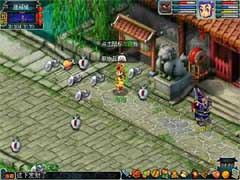
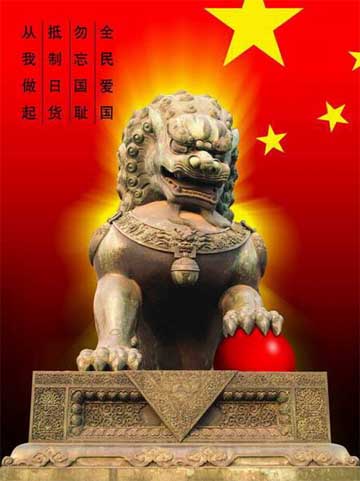
Even by the degraded standards of everyday life in Baghdad, this report from CNN's Nic Robertson comes as a shock:
One international official told me of reports among his staff that a 15-year-old girl had been beheaded and a dog's head sewn on her body in its place; and of a young child who had had his hands drilled and bolted together before being killed.
... How can you win over the heart and mind of someone who sews a dog's head on a girl? Would more U.S. troops alter Iraq's homicidal dynamic? Not really, given that, on the question of sectarian rage, America is now largely beside the point. True, U.S. troops can be--and have been--a vital buffer between Iraq's warring sects. But they cannot reprogram their coarsened and brittle cultures. Even if America had arrived in Iraq with a detailed post-war plan, twice the number of troops, and all the counterinsurgency expertise in the world, my guess is that we would have found ourselves in exactly the same spot. The Iraqis, after all, still would have had the final say.
So this is alternate excuse for not needing more manpower -- the Iraqis are going to kill themselves one way or the other.
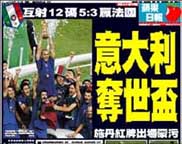








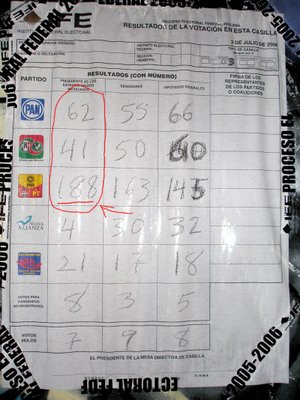
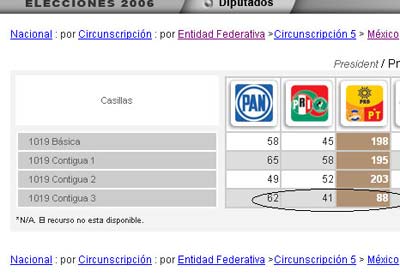
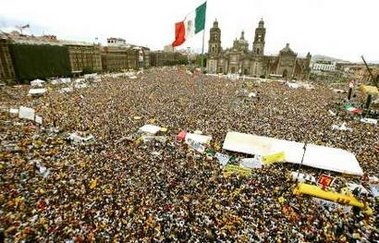
The program began by saying that it (note: the British media reports) is the competitors' way of attacking Foxconn. The Department of Labor has not yet received any complaints about Foxconn. Then the screen showed the tv crew entering the factory. They refuted the British media's claim that more than a hundred people slept on the same big bed. The shots showed that the workers' dormitory had lower and upper bunks with electric fans. They interviewed a worker who said that conditions are good and it is a minor inconvenience not to have privacy in such a pubilc space. They interviewed some female workers who said that the company does not have forced overtime. When things get busy, they work 3 more hours per day and that is optional for the workers. The interviewed workers looked nervous and spoke unnaturally, so it is easy for people to conclude that these were specially produced interviews in which the interviewees did not express their true opinions. The program also interviewed black and other foreign workers, who said that everyone is free to sue the company if any law is broken. That is more lying with eyes wide open.
Shenzhen TV is a gcd (note: the abbreviation for Chinese Communist Party) television station and Foxconn pays taxes to the gcd. Based upon the size of the company, the amount of taxes must be huge. So they are connected by their interests. Shenzhen TV is lying with eyes wide open. They ignore the moral conscience of media, they ignore social justice, they refuse to obtain evidence, they do not look for the facts behind the news and they help to cover up instead on behalf of the authorities. They show us the naked shameless faces of hooligans.
By the time that I watched the program to this point, the formerly kind and endearing television program hostess now looked ugly and repulsive. I felt that she was a 100% bitch.
It is so hard to make progress one inch at a time in this society!!
These dogs days, this world in which the sun is covered up every day, when will they end!!
... 那个栏目开始就说,这应该是竞争对手实施的打击手段,劳动部门至今没有收到一例与富士通有关的投诉。随着电视进入工厂的镜头,他们反击了英国媒体说的一百多人睡大通铺的说法。采访镜头介绍了工人宿舍是上下铺,有电风扇,并采访了一位员工,该员工表示生活条件不错,小小的不方便是公共空间难有个人隐私,总体是不错的。又采访了一些女员工,说公司并没有强制加班,只是忙的时候要加,一般每天加3小时,可去可不去。被采访的员工显的有些紧张,说话很不自然,很容易地让人判断为特意制造的采访,被采访人没有真实表达。节目又采访了黑人,外籍员工,表示每个人都是独立的,如果公司有违法,个人完全可以根据法律去告云云,也是睁眼说瞎话。
深圳电视台是gcd的电视台,而富士康向gcd纳税,而以该公司现在的规模,纳的税额应该是巨大的,可见他们之间有利益纽带。深圳电视台睁眼说瞎话,不顾媒体的道德良知,罔顾社会公义,不去取证,不去挖掘新闻背后的事实,反而为虎作伥,帮忙掩盖,一付赤裸裸的无耻流氓无赖嘴脸。
看到这里,本来和蔼亲切的那个女主持人,在我眼里顿时丑陋起来,恶心起来,觉得她十足十是个bitch。
这社会的一点一滴的进步是何其艰难!!
这些狗日的,这暗无天日的世界,何时是个尽头!!
Did you think that this was what they are posting at Chinese forums these days?
Now why is kind of talk being allowed? The commentator is the type known as "angry youth," which is characterized as pure rage without a plan. But the moment he/she says something such as "And therefore the only way out is for we the people to join the Chinese Democratic Party!" the sirens will go off ...
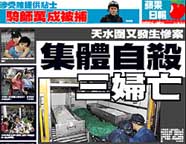
(in translation) Personally, I am extremely opposed to superstitution. I don't accept the notion of a "haunted house." I don't understand why a house in which someone died will no longer be fit to inhabit. I would like to personally experience such a "haunted" or "ghost" house, but I haven't had the chance yet. Will the various demons, ghosts and monsters please drop by to visit so that I can see what you can do?
Those who don't believe in ghosts obviously don't believe in haunted houses, but even those who believe in ghosts are not in agreement about the definition of a haunted house. Some people believe that the deaths must be mysterious (such as murder by unknown others); some people believe that the deaths have to gory and gross; some people believe that all deaths (including natural ones) will haunt a house; others believe that the adjacent units on the same floor and the units on top and underneath are also haunted. Legally speaking, deaths do not constitute a flaw in the apartment unit and therefore the Land Property Transactions Office does not collect any data on "haunted" houses.
A worker has to have a capable superior/leader who knows "strong public governance (強政勵治)." But if the leader only knows how to be strong without being able to govern, then it is just blowing smoke without clearing his mouth. He is just claiming the credit and leaving the mess for his workers to clean up. That will devastate the workers.
When Miss Lee was young, she used to ask Mrs. Lee why she had to wash the dishes and mop the floor instead of her younger brother. Mrs. Lee would always say that she was obviously going to delegate the person that she could trust (hmmm ... my younger brother is not in Hong Kong right now, so I'm betting that he won't read this ...). That is to say, people who can't perform will never be asked to perform. This logic does not seem right! ...
At 11:56 on July 4, there was a 5.1 earthquake in Wen'an, Hebei that was felt in Beijing and Tianjin. At 12:16, twenty minutes after the earthquake occurred, the Xinhua News Agency reported this suddenly occurring natural disaster. The news was then carried by the various web portals on their front pages, and CCTV "News at 12:30" also reported the news immediately.
The timely reporting by the media after the earthquake calmed the shock among people. But some people living in the quake zone were not satisfied with the 20 minute delay in media reporting. Between the twenty minutes of the earthquake itself and the media report, all sorts of information as well as rumors have already been propagated on the Internet and via mobile telephone. At the Beijing Earthquake Office, the five telephone lines took hundreds of calls. Compared to the communications technology in today's society, 20 minutes is still a beat too slow, and that appears to be a very long time for people who are scared about the suddenly occurring event ...
Relevant link: Earthquake gives Beijing a wobbly. By Jeremy Goldkorn, Danwei. July 4, 2006.

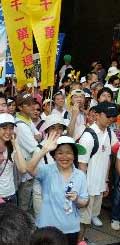
話 說 陳 太 臨 離 隊 之 前 , 有 個 電 台 女 實 習 記 者 圍 緊 陳 太 、 扑 咪 之 時 , 突 然 發 覺 自 己 兩個 膊頭 都 被 電 視 台 攝 影 機 壓 住 , 前 後 都 係 人 , 郁 都 唔 郁 得 , 呢 個 時 候 , 佢 感 覺 有 人摸 佢 pat pat , 而 且 仲 愈 摸 愈 猖 狂 , 連 佢 個 可 以 上 網 手 提 電 話 都 想 偷 走 。
女 記 者 無 計 之 下 , 情 急 起 惟 有 大 叫 非 禮 同 救 命 , 點 知 行 家 不 單 止 冇 施 援 手 , 仲 有 記 者 叫 佢 唔 好 大 嗌 , 搞 到 佢 收 唔 到 陳 太 把 聲 , 真 係 全 冇 同 情 心 。
女 記 者 最 終 都 蝕 底 晒 , 唯 有 向 上 司 訴 苦 , 然 後 就 報 警 。 當 佢 去 報 警 時 , 班 差 人 話 佢唔 係 第 一 個 話 唔 見 記 者 , 擺 明 有 人 混 水 摸 魚 。 電 台 上 司 事 後 好 勞 氣 , 覺 得 行 家 做 新聞 係 緊 要 , 但 唔 等 於 見 到 有 人 叫 救 命 都 唔 理 。(in translation) When Anson Chan was about ready to leave, an intern radio reporter was right close to Mrs. Chan with microphone in hand. She found two television cameras pressing down upon her shoulders. There were people all around her and she could not move. At the moment, she felt someone fondling her buttocks. Eventually, the person tried to remove her Internet-capable movile telephone.
With no choice, the female reporter shouted "Sexual assault!" and "Help!" But her profession colleagues not only did not help, but another reporter actually told her to shut up because he could not catch Mrs. Chan's voice. That is called a genuine lack of sympathy.
So the female reporter was thoroughly taken advantage of. Afterwards, she complained to her boss and filed a police report. The police told her that she was not the first reporter to report losing something, so someone was obviously taken advantage of the siutation. Her boss was angry because while getting the news was important, it should not be so important that reporters should ignore a call for help.
Meanwhile, today's Next Weekly magazine has another apparent exclusive about Anson Chan's bodyguard in sunglasses. The reporters do not seem to be pleased with this man, who was compared to Bus Uncle in crudeness. So they countered with this observation: the man did not realize his fly was not fully zipped up!!! There is no accompanying photographic evidence, although any reporter worth his salt should have snapped it.
Do you believe any government or people should accept this as normal conduct in their daily lives? For one, I don't and I won't accept this kind of thing. Most people probably will not. What remains is haggling over the details.
How do they handle it in the United States of America? They don't need any press laws, because the people will take the matter into their own hands. This is about power to the people. For illustration, please read these posts from Glenn Greenwald: Conservative pundits reveal murderous plot by the Travel Section of the NYT!; What is left of Malkin, Hinderaker and Horowitz's credibility? and Light holiday fare. This is how to get a FAIR AND BALANCED MEDIA!!! Of course, I am being sarcastic here. This is a universal issue for which there isn't any out-of-the-box solution.
I just the other day got, an internet was sent by my staff at 10 o'clock in the morning on Friday and I just got it yesterday. Why?
Because it got tangled up with all these things going on the internet commercially.
So you want to talk about the consumer? Let's talk about you and me. We use this internet to communicate and we aren't using it for commercial purposes.
We aren't earning anything by going on that internet. Now I'm not saying you have to or you want to discrimnate against those people [...]
The regulatory approach is wrong. Your approach is regulatory in the sense that it says "No one can charge anyone for massively invading this world of the internet". No, I'm not finished. I want people to understand my position, I'm not going to take a lot of time. [?]
They want to deliver vast amounts of information over the internet. And again, the internet is not something you just dump something on. It's not a truck.
It's a series of tubes.
In the residential area around Beijing's South Railroad Station, there are thousands of people from all over China who stay there while they go about petitioning various government departments. If you walk south from the station for a couple hundred meters, you will reach the main street which is just three meters wide and lined with cheap food shops, stationeries and professional writers (of petitions). The walls are pasted with posters that present individuals' problems or condemn corruption.
On this day, the reporter saw something unusual on the wall outside the Supreme Court's gate at the main street's entrance. There was a photocopied version of an interview with Hong Kong's legislator Leung "Long Hair" Kwok-hung from February this year. The story covered Leung's history and how he donated HK$40,000 from his monthly salary towards getting legal aid. A petitioner read the the article and said: "It would be great if Long Hair is here!" Another petitioner said: "The Communists could not let someone like that come here! We are just being kicked around like soccer balls by different departments. No one is willing to give us justice!"The spectators said that they do not know how this interview got posted. Someone later said that six Hong Kong university students came a few days ago. Some of the students used a mini-videocamera to film the petition village. When the petitioners saw the students, they immediately surrounded them and presented their stories. As the crowd grew larger, some petitioners were concerned that the police would come and so they escorted the students out of the village and put them into taxis. It is likely that the students left that Long Hair interview behind.
The turnout for Saturday's pro-democracy rally may not have been very impressive, but it didn't stop political parties and civic groups from raking in the dollars to help their causes.
As might be expected, organiser the Civil Human Rights Front was the biggest winner, collecting more than $200,000 from the sale of badges, T-shirts and whistles. The sharp tongue and political satire of talk-show host Wong Yuk-man and "Long Hair" Leung Kwok-hung helped the League of Social Democrats take an impressive $168,000. More modest, but still a handy sum, was the $100,000 earned by the Civic Party from selling a range of items including "democracy eggs" and books written by legislators Ronny Tong Ka-wah and Mandy Tam Heung-man. The Democratic Party also raised about $100,000.
Not everyone was happy.
One activist said the rally had been turned into a "marketplace" for what he termed illegal hawking. "Everyone is supposed to have a hawker licence to set up a stall in the street. Ours was rejected by the police because they said the rally area was too crowded for a hawker stall," he said. "As far as I understand, there's a lot of illegal hawking out there."
So the corporate managers are maximizing their personal utilities, which do not have match the overall corporate objectives. In this case, the corporate management seems quite happy to let the good times roll.
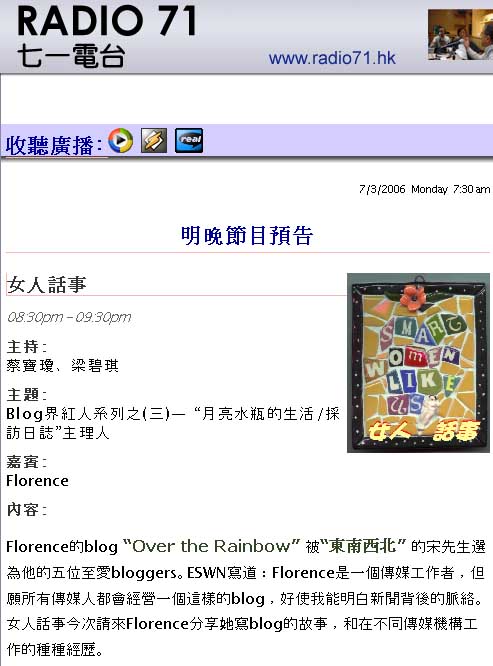
[in translation] I have seen enough fake news, but this is the first time that I have read something this fake.
According to yesterday's Chengdu Evening News, 17-year-old female Yu Ping of Chongzhou refused to live in her comfortable and spacious room and moved into the pig sty where she stayed for 14 years. The report said that she was imitating the King of Yue, Gou Jian (勾践), who lost his kingdom but regained it by deliberately depriving himself of luxuries in order to steel his will. This contemporary version of the King of Yue did not waste her efforts, for she scored 519 marks to become second in her class and fifth in her town in the middle school examinations.
What an inspiring story! Except this is a bit too fake. Never mind anything else, but let us examine the fact that "a seventeen-year-old lived in a pig sty for fourteen years" and draw some conclusions. Did a 3-year-old girl already know about the legend of the King of Yue? Did that reporter think that a 3-year-old girl would know about what the King of Yue did? If the girl really moved into the pig sty when she was three years old, then it only meant that her parents were criminally guilty of child abuse and the reporter should have called the police immediately to put a stop to this maltreatment which may still be going on. Instead, we get treated with a discussion about whether "contemporary society still needs self-deprivation for self-discipline!" ... Please, will the interviewers and writers exercise some commonsense and show a little bit of professionalism?
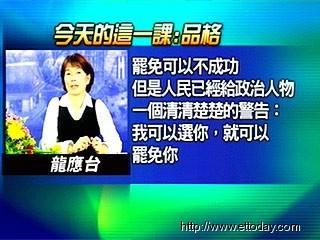
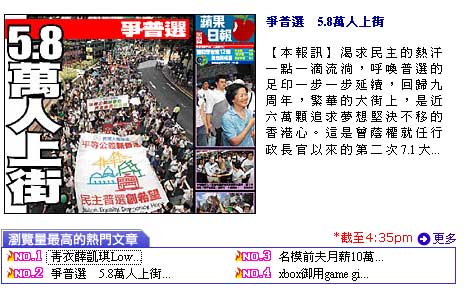
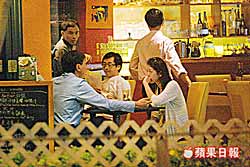
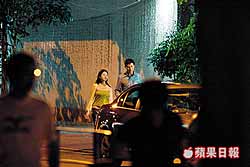

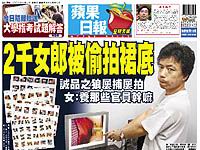

Ironically, during the same month that the United States was sounding the alarm about a space Pearl Harbor, two Hong Kong newspapers (Sing Tao Jih Pao and Xing Dao Daily) published articles describing a secret weapon that China was supposedly developing to carry out a surprise attack against enemy space assets. [8] They called it a "parasite satellite"--a small, sophisticated device that could attach itself to an enemy satellite and disrupt or destroy it on command. References to these Hong Kong newspaper articles subsequently appeared in the 2003 and 2004 editions of the Pentagon's Annual Report on the Military Power of the People's Republic of China. [9]
Now I live in Hong Kong and I wonder about the two daily newspapers Sing Tao Jih Pao and Xing Dao Daily. These are not two newspapers -- this is one newspaper and the two titles are its spellings under two different Romanization systems. Indeed, here is footnote 8:
8. Tung Yi, "China Completes Ground Test of Antisatellite Weapon," Hong Kong Sing Tao Jih Pao (online version), January 5, 2001, in FBIS-CPP20010105000026; "China is Developing Antisatellite Weapons as a Counter Measure," Hong Kong Ming Pao (online version), January 30, 2001, in FBIS-CPP20010130000049.
So the two newspapers are Sing Tao Jih Pao and Ming Pao (and not Xing Dao Daily). What ever happened to simple fact-checking and proof-reading?
Here is more explanation about this Xing Dao Daily:Pentagon analysts should have been able to trace the story to Hong despite the common practice in Chinese newspapers of sharing stories without attribution, since the article appearing in Xing Dao Daily presents the relevant information in the same sequence as Hong's original internet posting with several passages copied verbatim (character for character in the Chinese). In considering the credibility of the information, the Pentagon should also have noted changes in the Xing Dao Daily that could have affected the quality of the newspaper's reporting. In particular, the March 1999 sale of the staid but unprofitable newspaper led to editorial changes designed to increase circulation and target a younger audience. As a result, by the time the article appeared, the Xing Dao Daily had been converted into a tabloid-style newspaper.
That must be news to the readers of Sing Tao or Ming Pao. These are not tabloid-style newspapers. Sing Pao may be characterized as a conservative pro-government, pro-business and pro-Beijing newspaper that thrives off classified job and real-estate advertising, while Ming Pao is self-characterized as the truthworthy middle-of-the-road newspaper of record.
But if the point is that you can't trust all the things that you read, it has been well made.
Thank you for your wonderful site that brings to those of us who can't read Chinese, news of what is going on outside our English-based world. In my view, the SCMP does a horrendous job of covering the city, so it is again no surprise that it has taken this paper over a week to comment on the Cream matter that you have referred to on your site.
What shocked me was not that it took the SCMP so long, but two of the segments in the story:
First from Shirley Wong Wai-kwan from ESCAF, an organisation you would think be up in arms about this. Here is a great opportunity for her to really make a statement, bring her cause to the fore at a time when public opinion on her side and awareness is extremely high. But no. "Not very clear," says Ms Wong when asked about if it is pornographic or not. Hmm ... Not very clear. Nice bit of waffling. A career in the government awaits.
Maybe I need to consult my dictionary. Now where is it? Ah yes.
por·nog·ra·phy n.
Sexually explicit pictures, writing, or other material whose primary purpose is to cause sexual arousal. The presentation or production of this material.
Now let's check back to the pictures. Seems pretty close to me.
The second was from the professor of journalism and member of the HK Press Council Kenneth Leung Wai-yin, using the terms "mountain" and "molehill", said he "couldn't understand" why people thought they were obscene. "More revealing clothing on the beach," he sniffs. Yes, Mt Leung, that's true. But the moment you photograph these more revealing outfits and the people barely contained in them, put them on a cover of a magazine, it becomes - checking back with definition above - pornography. Why is that so hard a concept to grasp?
Of course, I am not a professor of journalism, or anything for that matter, but I am going to side with Justice Potter Stewart on this one as far as definitions go.
But the question here is not obscene or not, is it? The problem that everyone has, that Ms Wong and Mr Leung missed - or if they didn't, the SCMP reporter missed - that these were taken of a 14 year old. There is no societal norm that thinks this is OK. None.
Incidentally, I work in the music business here, and no one I know thought this was at all OK. Not that that settles anything, but I thought you should know - kind of by way of disclaimer.
So yet again, a hearty "well played, sir" and a golf clap to the SCMP, for thanks to them a significant portion of the population lives in complete ignorance as to what is going on in their own city.
Yes, much of the Chinese press is obsessed with gossip, scandal and gory details, but as these provide some of the fuel that drives society in the city, not to not report or reflect on them is quite irresponsible, don't you think?
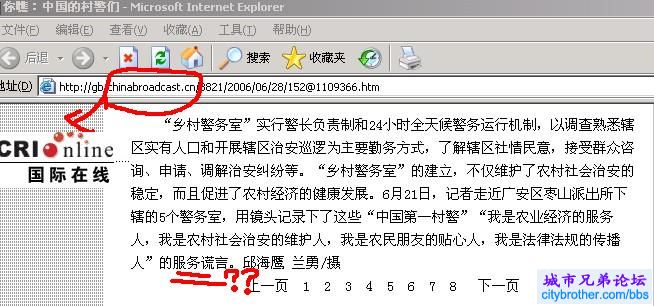
[001]
More
About Liu Zhihua (07/01/2006) (Apple Daily via ChineseNewsNet)
More news from the Roadside News Agency. The origins of Liu Zhihua's
problem were tied to Beijing's largest incomplete building: the AC Morgan
Center. In 2002, the Morgan Center announced that the AC Morgan
Company (USA) intended to build its Asian headquarters. AC Morgan is
unrelated to JP Morgan or Morgan Stanley; actually, it is a Chinese company
from Henan province. Originally, the AC Morgan was supposed to consist
of one hotel, one office building and three residential apartment
buildings. In October 2003, construction was halted due to lack of
funds. In January 2006, the Beijing city government requisitioned the
land and sold it off at 1.76 billion RMB by auction.
So the rumor is that Liu Zhihua 'crossed' certain people in the AC Morgan
affair. Liu was lured to have a tryst with a woman during which the
entire proceedings were secretly taped and then shipped to the Central
Disciplinary Committee. The tape was said to be crisp and
high-quality, and this is the reason why the Central Disciplinary Committee
said that it possessed "introvertible" evidence about the
"dissoluteness" of Liu Zhihua, and they issued the statement as
soon as the screening session was over.
Archives